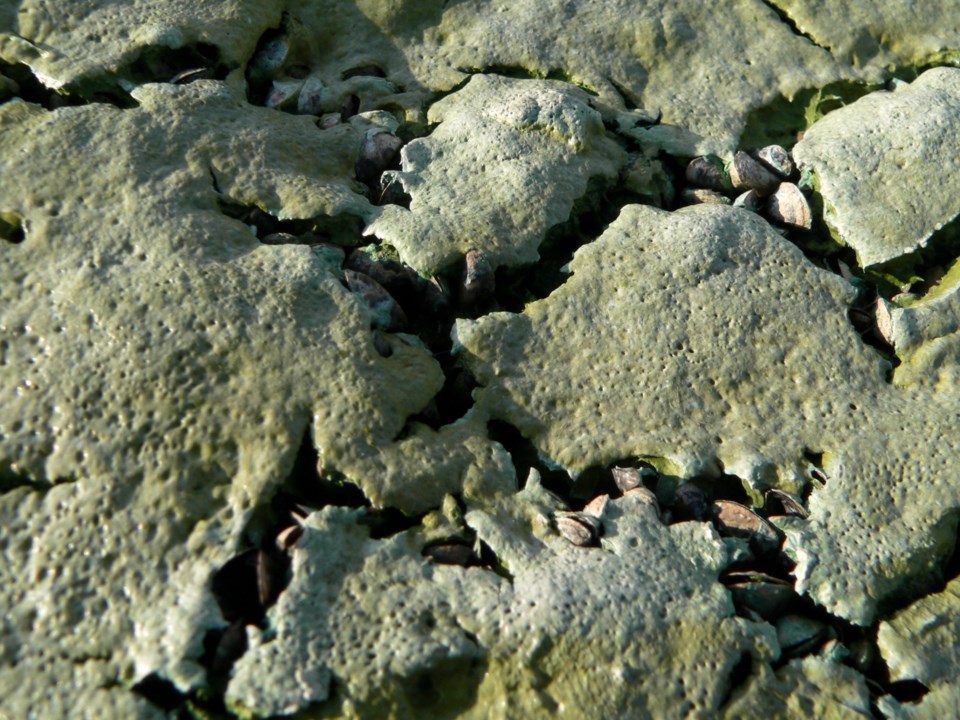NEWS RELEASE
ALGOMA PUBLIC HEALTH
************************
Algoma Public Health is investigating a suspected blue-green algae bloom on Twin Lakes in Hilton Township on St. Joseph Island. Water samples collected August 18, 2016 are being sent for testing.
Blue-green algae are naturally present in ponds, lakes and streams but can quickly increase in numbers to form a scum called a bloom when water is shallow, slow moving and warm. Blooms most commonly occur in late summer and early fall.
Toxins produced by certain forms of blue-green algae can affect your health in two ways. Skin contact with the algae through washing or swimming can cause itchy, irritated eyes and skin.
Drinking water contaminated with the toxins can cause nausea, vomiting, abdominal pain and diarrhea. Liver or nervous system disease can also develop if toxins are consumed over a long period of time.
“You can protect your health and that of your family, friends and pets during a blue-green algae bloom” says Blair Shaw, Public Health Inspector with Algoma Public Health, by “not drinking the water and avoiding activities that involve direct contact with it such as swimming, water skiing, and showering.”
As a precautionary measure, Algoma Public Health is recommending that residents:
- Not drink, swim in, bathe, or shower with the water, even water that passes through a treatment system since these systems are not capable of removing the toxins.
- Not use bleach to treat water as this can release toxins from the algae and will not make the water safe for drinking or cooking.
- Not eat fish caught during a blue-green algae bloom.
- Avoid activities involving direct contact with the water such as swimming and water skiing.
- Use alternative water sources such as bottled water or water obtained from a safe water supply.
- Restrict pet and livestock access to the water
Learn more about recreational water
*************************
